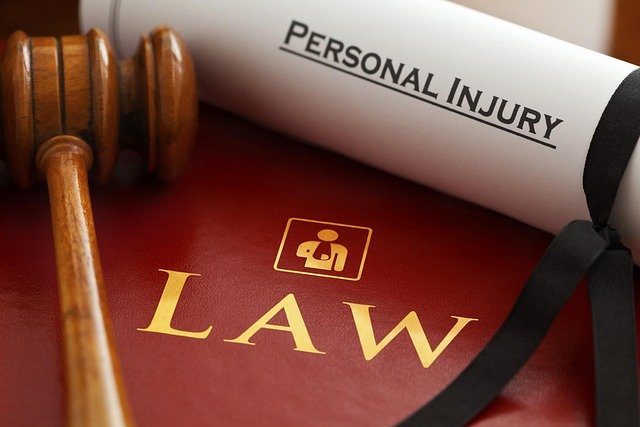Understanding the Role of Personal Injury Lawyers in Legal Claims
When an accident or injury occurs due to someone else's negligence, the path to compensation and justice can be complex and overwhelming. Personal injury lawyers specialize in representing individuals who have suffered physical or psychological harm as a result of another party's actions or inaction. These legal professionals navigate the intricate legal system on behalf of their clients, working to secure fair compensation while allowing the injured party to focus on recovery. Their expertise spans various aspects of personal injury law, from initial case evaluation to courtroom representation.

Common Types of Cases Handled by Personal Injury Attorneys
Personal injury law encompasses a diverse range of case types, each with its own legal nuances and challenges. Motor vehicle accidents represent one of the most common categories, including car crashes, motorcycle accidents, and commercial truck collisions. These cases often involve complex liability determinations and negotiations with insurance companies. Slip and fall incidents, which fall under premises liability, constitute another significant portion of personal injury cases, occurring when property owners fail to maintain safe conditions. Medical malpractice claims arise when healthcare professionals deviate from the accepted standard of care, causing harm to patients. Other common case types include workplace injuries, defective product claims, dog bites, and wrongful death suits. Each category requires specialized knowledge of relevant laws and precedents.
How Personal Injury Lawyers Support Accident Victims
The support provided by personal injury attorneys extends far beyond simple legal representation. From the initial consultation, these lawyers conduct thorough investigations to establish liability, often collaborating with accident reconstruction specialists, medical experts, and other professionals to build compelling cases. They handle all communications with insurance adjusters, preventing clients from making statements that could damage their claims. Documentation management forms another crucial service, as attorneys gather and organize medical records, police reports, witness statements, and other evidence. During settlement negotiations, personal injury lawyers leverage their knowledge of case values and negotiation techniques to counter lowball offers from insurance companies. If a fair settlement cannot be reached, they prepare for litigation, managing all aspects of trial preparation including discovery, depositions, and courtroom advocacy.
Legal Rights and Compensation in Personal Injury Cases
Personal injury victims possess specific legal rights that form the foundation of their claims. The right to seek compensation for damages represents the core principle, encompassing both economic and non-economic losses. Economic damages include quantifiable costs like medical expenses (past and future), lost wages, reduced earning capacity, and property damage. Non-economic damages cover less tangible but equally significant impacts such as pain and suffering, emotional distress, loss of enjoyment of life, and loss of consortium. In cases involving particularly egregious behavior, punitive damages may be awarded to punish the wrongdoer and deter similar conduct. The statute of limitations represents another critical legal concept, establishing the timeframe within which claims must be filed—typically ranging from one to three years depending on the jurisdiction and case type.
The Personal Injury Legal Process Explained
The personal injury legal process follows a relatively predictable path, though individual cases may vary. Initially, the attorney conducts a case evaluation to determine its merits and potential value. Following client engagement, the investigation phase begins, involving evidence collection and liability assessment. Before filing a formal lawsuit, many attorneys send demand letters to insurance companies outlining the damages and proposed settlement amount. If pre-litigation negotiations fail, the attorney files a lawsuit, initiating the discovery process where both sides exchange information through interrogatories, depositions, and document requests. Throughout this process, settlement discussions continue, with many cases resolving before trial. For those that proceed to court, the attorney presents evidence, examines witnesses, and delivers arguments before a judge or jury. Even after a verdict, the legal process may continue through appeals or during the collection of awarded damages.
Selecting the Right Personal Injury Attorney for Your Case
Choosing an appropriate personal injury lawyer significantly impacts case outcomes. Experience in handling similar cases represents a primary consideration, as attorneys with relevant expertise understand the nuances of specific injury types and liability issues. Prospective clients should evaluate the lawyer’s track record of settlements and verdicts, though past results don’t guarantee future outcomes. Resource availability matters as well—established firms typically possess the financial capacity to advance case costs for expert witnesses, investigations, and other expenses. During initial consultations, which most personal injury attorneys offer for free, clients should assess communication style, responsiveness, and personal compatibility. Fee structures present another important factor, with most personal injury lawyers working on contingency arrangements, meaning they receive payment only if they secure compensation for their clients. This arrangement aligns the attorney’s interests with the client’s goals and provides access to legal representation regardless of financial circumstances.
Personal injury lawyers serve as advocates and guides through what is often a challenging period in their clients’ lives. Beyond their legal expertise, they provide peace of mind by handling complex procedures and negotiations while the injured party concentrates on healing. Through their specialized knowledge and dedication, these attorneys help ensure that accident victims receive fair treatment under the law and appropriate compensation for their injuries and losses.




